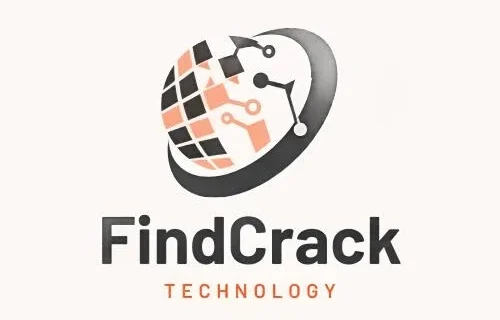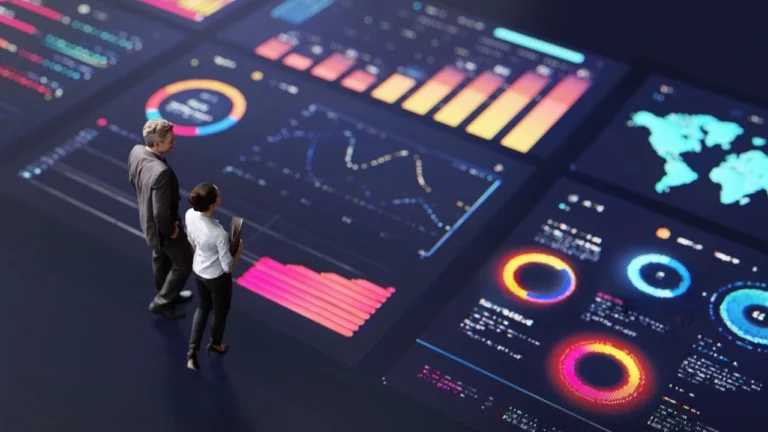Introduction
Are you having trouble running your business? You’re not the only one. According to Fortune Business Insights, the global ERP software market is expected to be worth around $90 billion by 2025. This is because more and more firms, especially small and medium-sized organizations (SMEs), are using these technologies to make things easier. ERP software combines your data to make things run more smoothly, from inventory problems to regulatory issues. The appropriate ERP can change the way you work, no matter what kind of business you have, whether it’s a little business, a factory, or a construction company. This article will help you choose the finest ERP software for your small or medium-sized business. It covers the best ERP software for small and medium-sized businesses, as well as industry-specific solutions like ERP software for food production.
Understanding ERP Software
ERP software is a game-changer for businesses. It unifies processes, boosts efficiency, and supports growth. Let’s dive into what ERP is and why it’s essential.
What is ERP Software?
ERP software combines different corporate tasks, such as accounting, inventories, and human resources, into one system. It puts all the facts in one place so you can see it all at once. Companies use ERP to make activities easier, cut down on mistakes, and make better decisions. Cloud-based ERP is more flexible, but on-premise alternatives are better for complicated demands. ERP makes it easier for small firms to grow. It makes sure that industries like manufacturing follow the rules and work quickly.
Benefits of ERP for Businesses
There are many benefits to using ERP systems. They make things easier by doing things automatically tasks that happen again and again. Real-time data makes it easier for teams to work together. Scalability lets businesses grow without having to change their systems. Compliance characteristics fulfill industry requirements, which is very important for industries like food and chemical manufacture. Grand View Research says that 53% of companies who use ERP enjoy a good return on investment, which makes it a wise choice.
Best ERP Software for Small and Medium Enterprises
SMEs need affordable, scalable ERP solutions to compete. These systems streamline operations without breaking the bank. Here’s a deep dive into top options for 2025.
Best ERP Software for Small and Medium Enterprises
Using ERP systems has a lot of advantages. They make things easier by taking care of jobs that need to be done again and again. Teams can work together better when they have access to real-time data. Companies can develop even if they don’t want to update their processes if they are scalable. Compliance features meet the needs of the industry, which is highly significant for businesses like those that make food and chemicals. Grand View Research claims that 53% of businesses that use ERP get a decent return on their investment; therefore, it’s a smart decision.
Free ERP Software for Small Businesses
Budget constraints? Free ERP software for small business options offers core features at no cost. They may require technical expertise for setup, but they’re a great starting point:
- Odoo Community Edition: Free with modules like accounting and sales. Add-ons may cost extra. It’s ideal for startups testing ERP capabilities. Limited support compared to paid versions.
- ERPNext: Open-source with HR, inventory, and project tools. Free to use, but customization may incur costs. Suits small businesses comfortable with open-source platforms.
- Dolibarr: Free for invoicing and inventory. Simple setup makes it accessible for small teams. Lacks advanced features but works for basic needs.
Free ERPs save costs but may lack robust support. Evaluate implementation expenses before committing.
Key Features for SME ERP
When selecting ERP software for small companies, prioritize these features:
- Scalability: Grows with your business.
- Cloud Access: Enables remote work.
- Integration: Connects with CRM or e-commerce tools.
- Ease of Use: Reduces training time.
- Analytics: Provides data-driven insights.
Comparison Table
|
ERP Software |
Key Features |
Best For |
Price Range |
|
Microsoft Dynamics 365 |
Microsoft integration, cloud access |
SMEs using Office 365 |
$70-$210/user/month |
|
Oracle NetSuite |
Real-time dashboards, scalability |
Growing businesses |
Custom pricing |
|
Odoo Community |
Free, customizable modules |
Budget-conscious startups |
Free (add-ons extra) |
|
SAP Business One |
Financials, sales, operations |
Small firms needing reliability |
$94-$200/user/month |
|
Sage Intacct |
Financial reporting, Salesforce integration |
Multi-entity SMEs |
Custom pricing |
ERP Software for Manufacturing Industries
Manufacturing businesses need ERP systems to manage production, inventory, and compliance. Specialized solutions cater to unique sector needs, making sure that things run smoothly and that rules are followed.
ERP Software for Small Manufacturing Business
ERP software for small businesses that make things and run a business Small businesses use ERP software to manage production and inventories. Some of the best choices are:
- MRPeasy: For small manufacturers (up to 200 employees), it’s in the cloud. Takes care of scheduling, inventories, and buying things. Not too expensive, at $49 to $99 per user per month. MRPeasy is good for small stores because it is simple to use.
- Katana makes it easier to keep track of production and inventories. Real-time data cuts down on waste. Prices start at $99 a month. Good for small businesses that need easy-to-use tools.
- Fishbowl works with QuickBooks. Great for keeping track of orders and managing inventories. Costs $4,395 for a one-time license. Great for companies that use QuickBooks Top10ERP.
These methods make things run more smoothly on the work floor, cut costs, and make production more efficient.
Industry-Specific Manufacturing ERP Solutions
Different manufacturing sectors require tailored ERP features. Here’s a breakdown of solutions for specific industries.
ERP Software for Food Manufacturing
ERP software for food manufacturing and ERP software for food manufacturers help with recipe management, compliance, and traceability.
Best choices:
BatchMaster Manufacturing ERP: Keeps track of recipes, lots, and compliance with FDA rules. Prices start at $60 a month for each user. Top10ERP is great for food manufacturers with small- to medium-sized businesses.
JustFood ERP: lets you track everything from start to finish, manage recalls, and plan production. Prices range from $5,000 to $250,000. Good for mid-sized food firms that need strong compliance tools.
Inecta Food ERP: Offers FSMA-compliant traceability and the flexibility to operate a warehouse from a mobile device. The price starts at $150 a month for each user. This software is particularly beneficial for food businesses seeking to grow and adapt.
These ERPs make sure that food is safe, that the rules are followed, and that manufacturing runs smoothly.
ERP Software for Chemical Manufacturing
ERP software for the chemical industry takes care of dangerous materials and following the rules. Suggested systems:
• Datacor ERP: Made for the chemical industry. Controls recipes, rules, and stock. Custom pricing works for businesses of all sizes. Great for chemical businesses that need to follow rules.
• Vicinity Manufacturing: Helps with batch processing and making sure the quality is good. Provides batch ticket processing and regulatory reporting. The best choice for chemical makers with small- to medium-sized businesses.
These solutions make sure that chemical manufacture is safe, follows the rules, and runs smoothly.
ERP Software for Metal Fabrication
Metal fabrication ERP software is mostly about keeping track of materials and job costs. Best options:
• ECI M1: Made for manufacturers who make things to order. Oversees production, costs, and planning. Custom pricing works for fabricators of all sizes. Good for job shop settings.
• Global Shop Solutions: Gives you tools for managing your shop floor, keeping track of your inventory, and getting data in real time. Perfect for manufacturers who want to handle all aspects of manufacturing.
These ERPs make fabrication processes more efficient, cut down on waste, and make it easier to keep track of costs.
ERP Software for Construction Industry
Construction firms need ERP to manage projects, budgets, and resources. Specialized solutions streamline complex workflows and ensure project success.
Best ERP Software for Construction Industry
The best ERP software for construction companies and the construction industry makes managing projects and finances easier. Top choices:
• Procore: A cloud-based tool for managing projects and working together. Procore offers features such as document management, scheduling, and financials. Custom pricing works for businesses of all sizes. This system is ideal for monitoring projects in real time. Focus on ERP.
• Viewpoint (Trimble Construction One): A full ERP system includes tools for managing projects, operations, and finances. This system is ideal for businesses with 50 to 500 employees who need to manage everything in a single location.
• CMiC: Combines project management and finance management. This system encompasses both payroll and human resources functions. It caters to large construction companies with intricate requirements.
These systems help teams work together better, keep costs down, and get more done on projects.
ERP Software for Oil and Gas Industry
The oil and gas sector requires ERP for asset management, compliance, and supply chain logistics. Here are key solutions.
ERP Software for Oil and Gas Industry
ERP software for the oil and gas industry and ERP software for oil and gas are both good at handling complicated tasks. The best systems are:
• SAP for Oil and Gas: Supports both upstream and downstream processes. Keeps track of assets, compliance, and money. Elevatiq is the optimal choice for large oil and gas companies operating globally.
• Oracle Oil and Gas: Makes exploration, production, and the supply chain more efficient. It provides you with project management and statistical data. Oracle Oil and Gas is the ideal choice for businesses seeking robust and adaptable solutions.
These ERPs make sure that everything runs well, follows the rules, and makes the most of assets.
ERP Software for Supply Chain and Logistics
Supply chain and logistics businesses need ERP for inventory tracking and transportation management. Here are the top solutions.
ERP Software for Supply Chain Management
ERP software for managing the supply chain makes planning and seeing things easier.
• SAP Supply Chain Management: Helps with planning demand, optimizing inventory, and managing logistics. Perfect for big companies with complicated supply chains.
• Oracle SCM Cloud: Gives you a full view of your supply chain. This includes the ability to manage orders and make purchases. This system is ideal for companies seeking comprehensive solutions.
These systems cut expenses and make the supply chain work better.
ERP Software for Logistics Industry
ERP software for the logistics business is all about moving goods and storing them. Manhattan Associates is a top company that makes warehouse and transportation management systems. The company offers real-time tracking and optimization services. This system is particularly beneficial for merchants and logistics companies.
• Descartes Systems: Offers real-time tracking, route planning, and help with customs compliance. These systems are particularly beneficial for companies that specialize in transportation.
These ERPs make logistics work better and make customers happier.
Top 10 ERP Software in the World
Want to know who the leaders of the globe are? According to Apps Run the World, the following are the top 10 ERP software applications in the world for 2025, based on their market share and the novelty of their concepts:
- SAP: S/4HANA and Business One are the top ones. It provides comprehensive solutions for all types of businesses.
- Oracle: Has NetSuite and Fusion Cloud. It excels in providing cloud-based analytics and ERP solutions.
- Microsoft Dynamics 365: This is made up of Business Central, Finance, and Operations. Works with Microsoft products.
- Infor: CloudSuite Industrial and LN are fantastic for making and shipping things.
- Sage has both Intacct and X3. Good at handling money and helping more than one group.
- Epicor: Their main goal is to make products and bring them to people. Different ways to use it.
- Acumatica is an ERP that is easy to use and runs in the cloud. It has a flexible license.
- Odoo: It’s free, open-source, and works excellent for small businesses.
- Workday is a cloud-based tool that makes it easy to keep track of finances and HR.
- IFS is a wonderful way to keep track of projects and assets.
These systems are the greatest since they are new, can grow with the firm, and include features that are specific to the industry.
ERP Software Developers in India
Need custom ERP solutions? ERP software developers in India offer cost-effective, tailored services for businesses worldwide.
Finding ERP Software Developers in India
People in India build their own ERP systems.
• One of the greatest companies is SPEC India, which creates custom ERP systems with the client in mind. SPEC India concentrates on developing systems that can expand and operate in the cloud.
• Enaviya Information Technologies makes software for businesses, such as ERP and CRM. Famous for the ability to come up with fresh ideas and flourish.
• SourcePro: Builds custom ERP systems that are easy to use. This company caters to a wide range of business types.
• Zenkins creates ERP systems using white-label solutions, allowing customers to retain the source code.
• Invoidea: They make tailored ERP solutions to help businesses run more smoothly.
TCS, Infosys, and Wipro are big IT companies that also create their own ERP systems. They use what they know from all over the world to do this.
Conclusion
ERP software makes firms work differently, no matter how big or little they are. Microsoft Dynamics, SAP, and Odoo are examples of applications that can help small and medium-sized businesses (SMEs) and industries like manufacturing, construction, and logistics discover the proper solutions for them. Free ERPs like ERPNext help you save money, and systems built for a given field make sure you follow the rules. The most crucial thing is to make sure that the features fit your demands. Read our guide to discover the finest ERP for 2025. Please leave a comment below if you have any questions or experiences using ERP.




